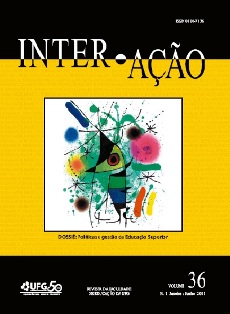REPERCUSSIONS OF LAW 10.639/03 IN THE MEDIA IN SALVADOR , BAHIA: AN ANALYSIS OF THE IMPLICATIONS FOR TEACHING PRACTICE
DOI:
https://doi.org/10.5216/ia.v36i1.15042Abstract
This paper addresses the repercussions in the media of the process of the obligatory implementation of Law 10.639/03 in the curricula of elementary and high schools in the State of Bahia. After clippage, certain reports published in two of Salvador’s most significant electronic journals, ibahia and A Tarde on-line, were examined. These highlight the situation of schools in Bahia in the context of the Bahia Public Prosecutor’s office inspection of enforcement of the law, which created a tense, interventionist situation. This paper proposes a reflection on the episode, showing that the social and racial inequality reproduced in the school remains unchanged. In addition, it suggests a reflection on the importance of combating all forms of discrimination and prejudice both within and beyond the school, factors addressed by the mainstream media as a reflex of Law 10.639/03.Downloads
Downloads
Published
How to Cite
Issue
Section
License
Inter-Ação uses the Creative Commons Attribution 4.0 License for Open Access Journals (Open Archives Initiative - OAI) as the basis for the transfer of rights. Open access means making documents available on the Internet free of charge, so that users can read, download, copy, distribute, print, search, or link to the full text of documents, process them for indexing, use them as input data for software programs, or use them for any other lawful purpose, without financial, legal, or technical barriers.
Authors publishing in this journal agree to the following conditions:
1) Authors retain copyright and grant the journal the right of first publication, with the work simultaneously licensed under the Creative Commons Attribution License, which permits redistribution of the work with attribution and first publication in this journal.
2) Authors are permitted to enter into additional, separate agreements for non-exclusive distribution of the version of the work published in this journal (e.g., for publication in an institutional repository or as a book chapter), with attribution and first publication in this journal.
3) Authors are permitted and encouraged to publish and distribute their work online (e.g. in institutional repositories or on their home page) at any time before or during the editorial process, as this may generate productive changes as well as increase the impact and citation of the published work.















